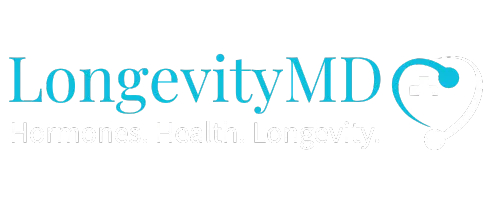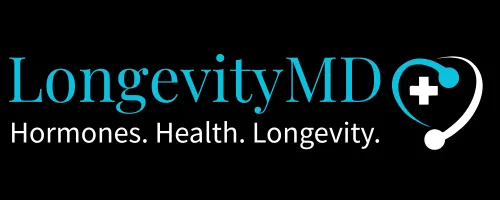
Cognition: Sharpening the Mind for a Longer, Smarter Life
How Longevity Medicine Enhances Focus, Memory, and Mental Resilience for a Healthier Future
Cognition lies at the heart of true longevity. At Longevity MD, we believe that living longer is only valuable if you’re able to think clearly, create freely, and stay mentally sharp. Through precision diagnostics, hormonal balance, and science-backed lifestyle strategies, cognitive health becomes a powerful foundation for resilience, decision-making, and purpose — well into later years.
“The greatest wealth is mental clarity — because every great decision, innovation, and relationship begins in the mind.”
The Role of Cognition in Longevity Medicine
While traditional healthcare focuses on treating cognitive decline after it appears, longevity medicine emphasizes prevention. Cognitive function — memory, attention, and problem-solving — begins to decline subtly as early as our 30s, often worsened by chronic stress, sleep deprivation, inflammation, and hormonal shifts.
At Longevity MD, cognitive optimization is viewed as a vital biomarker of healthspan. Dr. Dewald Jurgens applies neuro-endocrine and metabolic insights to protect brain performance long before symptoms develop.
By measuring key biomarkers such as cortisol, testosterone, estrogen, thyroid hormones, vitamin D, B12, and inflammatory markers like CRP, Longevity MD helps patients identify imbalances that affect focus, memory, and mental energy.
The Science of a Sharper Brain
Your brain is an energy-intensive organ — using nearly 20% of your body’s total energy. When metabolic or hormonal systems falter, the brain is often the first to show signs: fogginess, poor recall, or mood fluctuations.
Dr. Jurgens integrates several evidence-based approaches:
1. Metabolic Optimization
Stable glucose levels are essential for cognitive endurance. Blood sugar spikes lead to mental fatigue, while balanced insulin sensitivity supports neurotransmitter production.
2. Hormonal Balance
Cognitive decline is linked to drops in key hormones. For example:
Estrogen supports memory and brain protection in women.
Testosterone enhances motivation and mental drive in men.
Cortisol regulation reduces brain inflammation and supports clear thinking.
3. Sleep & Circadian Health
Deep sleep triggers memory consolidation and cellular repair. Optimizing melatonin cycles, stress management, and sleep hygiene are pillars of long-term cognitive vitality.
4. Nutrient and Mitochondrial Support
Omega-3 fatty acids, magnesium, and CoQ10 improve neuronal signaling and reduce oxidative stress — key for maintaining focus and preventing neurodegeneration.
Training the Mind Like a Muscle
Cognitive longevity isn’t just biology — it’s training. Structured mental exercise builds neuroplasticity, the brain’s ability to form new pathways and recover from damage.
At Longevity MD, patients receive tailored programs combining:
Cognitive training platforms
Mindfulness and meditation practices
Functional movement and breathwork
Biofeedback tools to monitor focus and stress response
These tools work synergistically with hormone and metabolic optimization, enhancing clarity and calm under pressure.
The Longevity Link: Body and Brain in Harmony
A stronger body supports a stronger brain. Exercise increases BDNF (Brain-Derived Neurotrophic Factor) — a protein essential for memory and learning. Strength training and cardiovascular activity have been shown to reduce dementia risk by up to 30%, according to the British Journal of Sports Medicine (2022).
By combining physical fitness, metabolic stability, and hormone precision, Longevity MD helps patients protect cognitive health decades before decline begins.
Practical Strategies for Cognitive Longevity
Prioritize protein-rich meals to support neurotransmitter synthesis.
Incorporate HIIT or strength training 3–4 times per week.
Practice daily mindfulness or deep breathing to reduce cortisol.
Maintain consistent sleep patterns — ideally 7–8 hours per night.
Schedule annual biomarker testing to detect early metabolic or hormonal changes.
The Future of Cognitive Medicine
AI-driven diagnostics and neuroimaging are opening a new era in cognitive prevention. Longevity medicine integrates genomic and metabolic data to personalize interventions — predicting cognitive risks before symptoms arise.
By staying ahead of decline, individuals can remain mentally agile and emotionally balanced through every decade of life.


